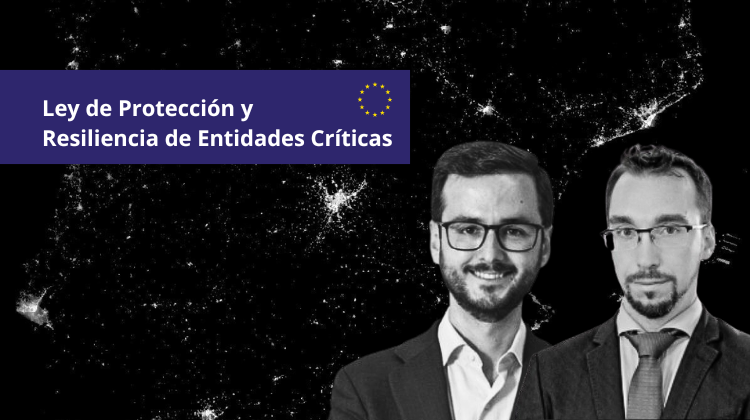Today marks one month since the “zero voltage” event that caused a blackout across the entire Iberian Peninsula, with the causes still unclear.
In this complex scenario, the Council of Ministers has given the green light to the draft Law on the Protection and Resilience of Critical Entities, which transposes EU Directive 2022/2557.
The regulation aims to strengthen the resilience of strategic sectors such as energy, transport, healthcare, and water.
Led by the Ministry of the Interior, the law compels companies to develop resilience plans, appoint security and resilience officers, vet key personnel, and implement incident notification systems, with the objective of ensuring continuity of essential services under any threat.
“The blackout has been a wake-up call regarding how interconnected and vulnerable we are as modern societies,” states energy law expert Jorge Andrey, partner at Samsø.
In a conversation with Strategic Energy Europe, he emphasises that complex events such as this do not allow for simplistic responses, but do demand stronger institutional preparedness.
The draft bill is being processed under an urgent procedure, which shortens legal deadlines, reduces the number of required reports, and limits public participation.
“This implies less participation and consensus,” warns Jorge Viñuelas, Head of European Affairs at beBartlet, who, in dialogue with Strategic Energy Europe, expresses concern, noting that this approach weakens the private sector’s ability to influence the design of a regulation it will be required to implement.
For the energy sector, the impact is immediate. Companies deemed critical will have to bear new administrative, operational, and financial burdens.
“The way in which the directive is transposed must consider the reality on the ground,” urges Viñuelas, stressing that without this approach, implementation may falter from the outset.
He also warns of the risk of “gaps or flaws when legislation is rushed through,” which could hamper compliance and the effectiveness of the law.
Outstanding legislative duties for renewables
Concerns extend beyond this regulation. Several key directives for the energy sector remain untransposed, despite their legal deadlines having passed or being imminent.
These include Directive 2019/944 on the internal electricity market, Directive 2018/844 on energy efficiency in buildings, and Directive 2023/1791, which sets new energy efficiency targets for 2030.
Of particular note is RED III (revised Directive 2018/2001), whose transposition deadline expired on 21 May 2025. It mandates a 42.5% share of renewables in gross final energy consumption by 2030, the creation of renewable acceleration zones, and shorter permitting timeframes.
Failure to act could result in sanctions from the European Commission and delay the country’s energy transition.
For Viñuelas, the pattern is familiar: delayed action followed by rushed implementation, with no room for participatory planning. “Only by acting early and doing it well can we avoid reaching the situation seen with the security directive,” he concludes.
The case of the critical resilience directive underscores the need for foresight and engagement with the private sector. Otherwise, legislation is seen as reactive to crises rather than preventive — a dynamic that deeply concerns the industry due to its lack of predictability.






























